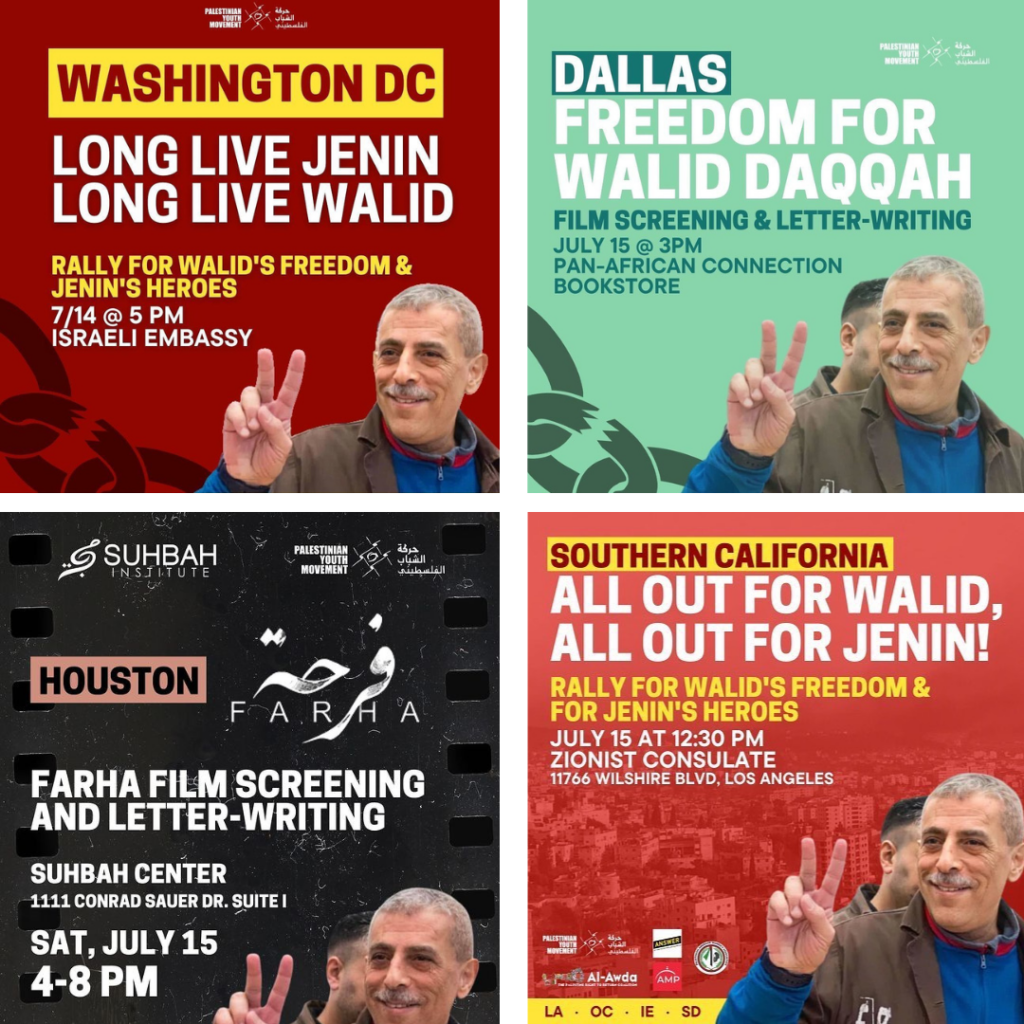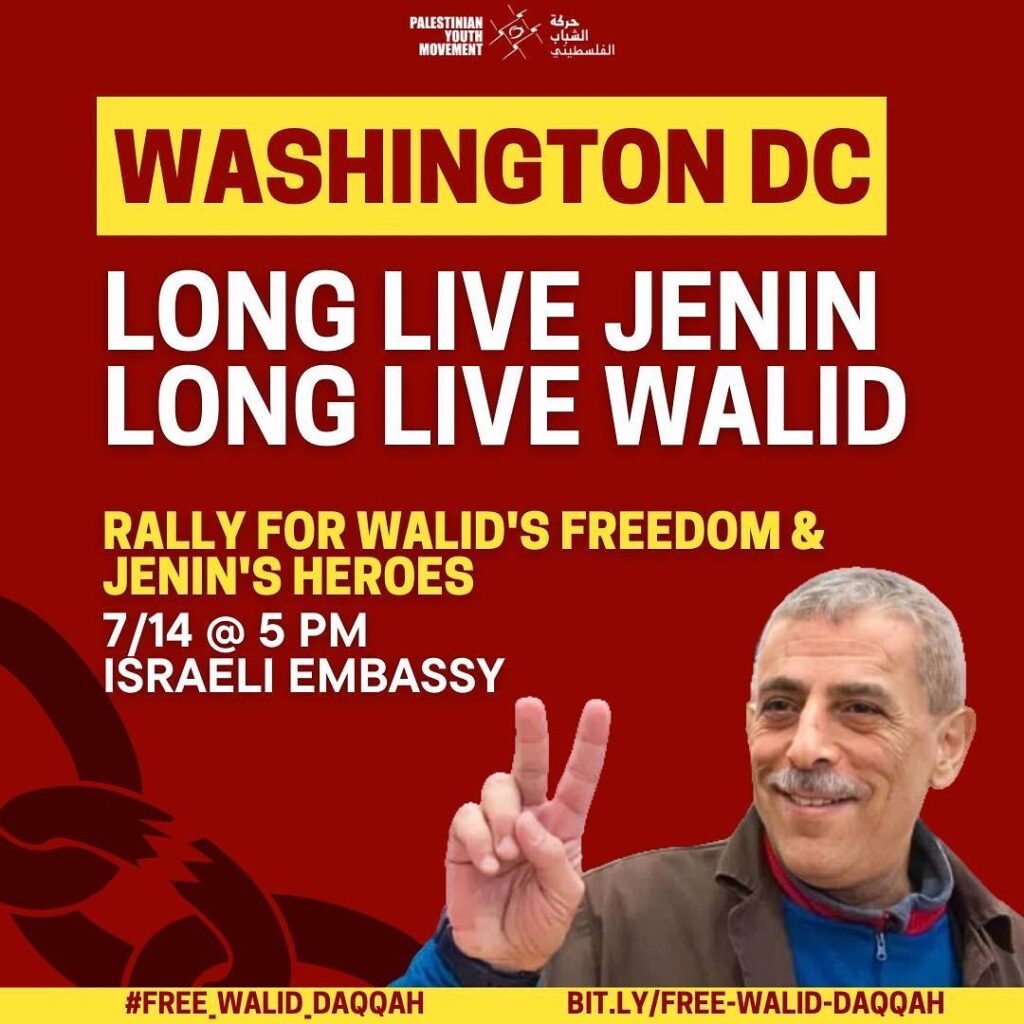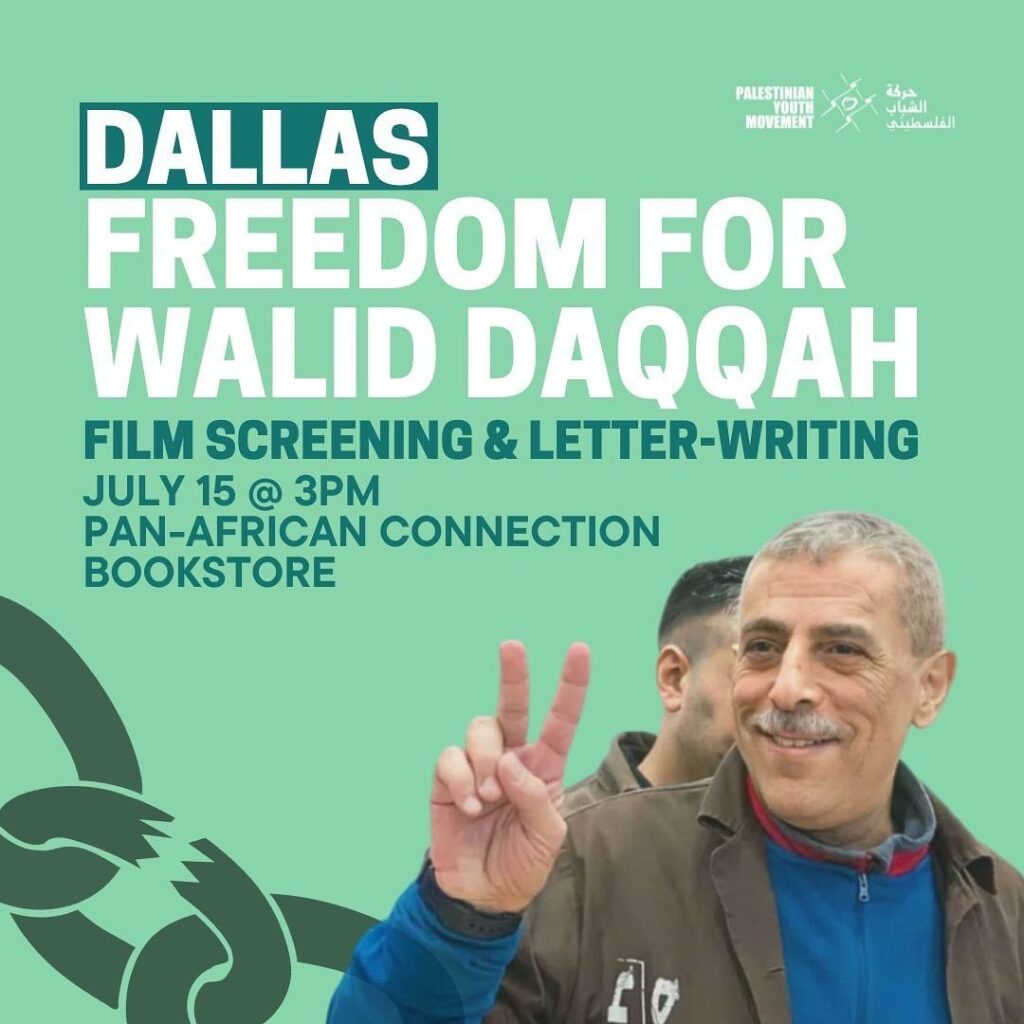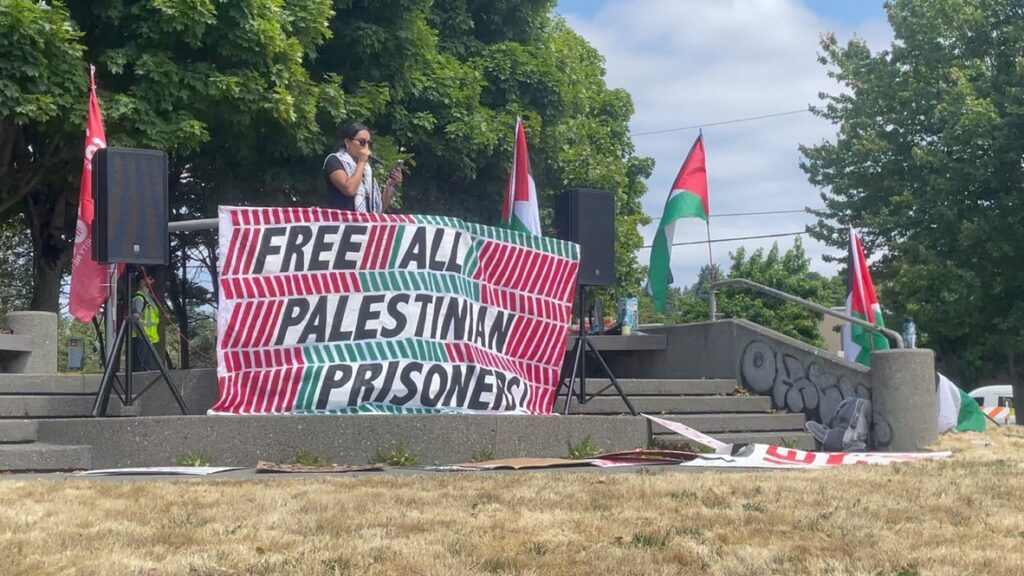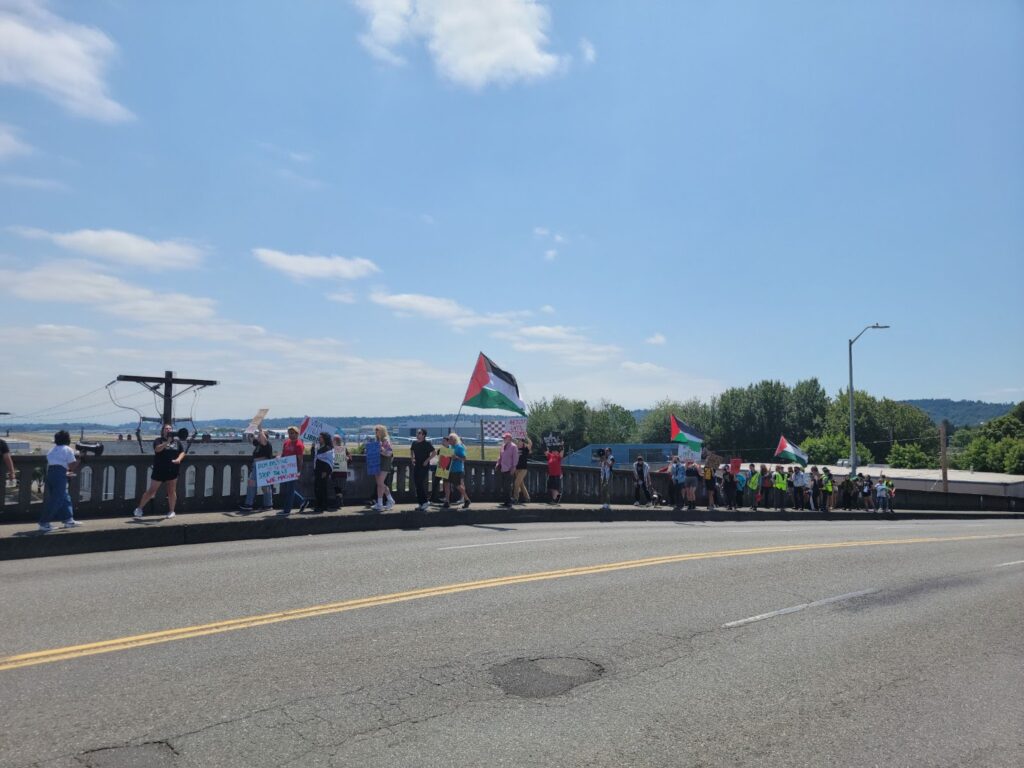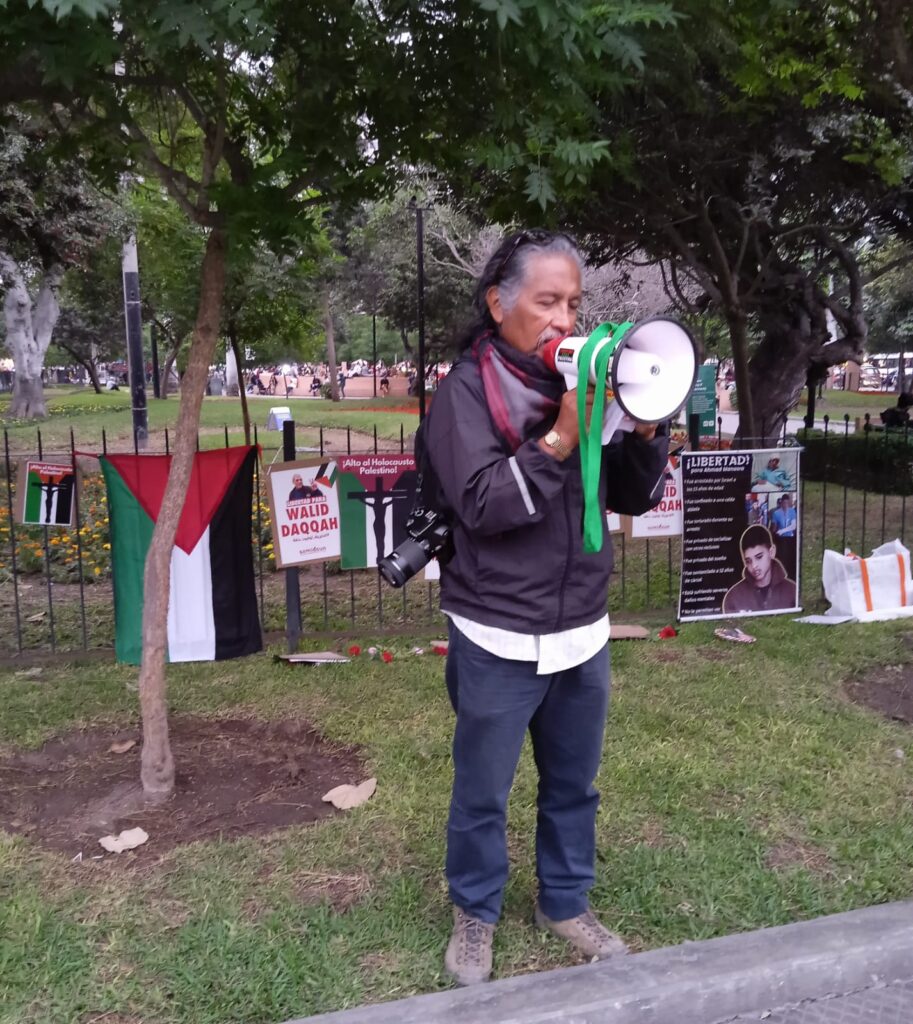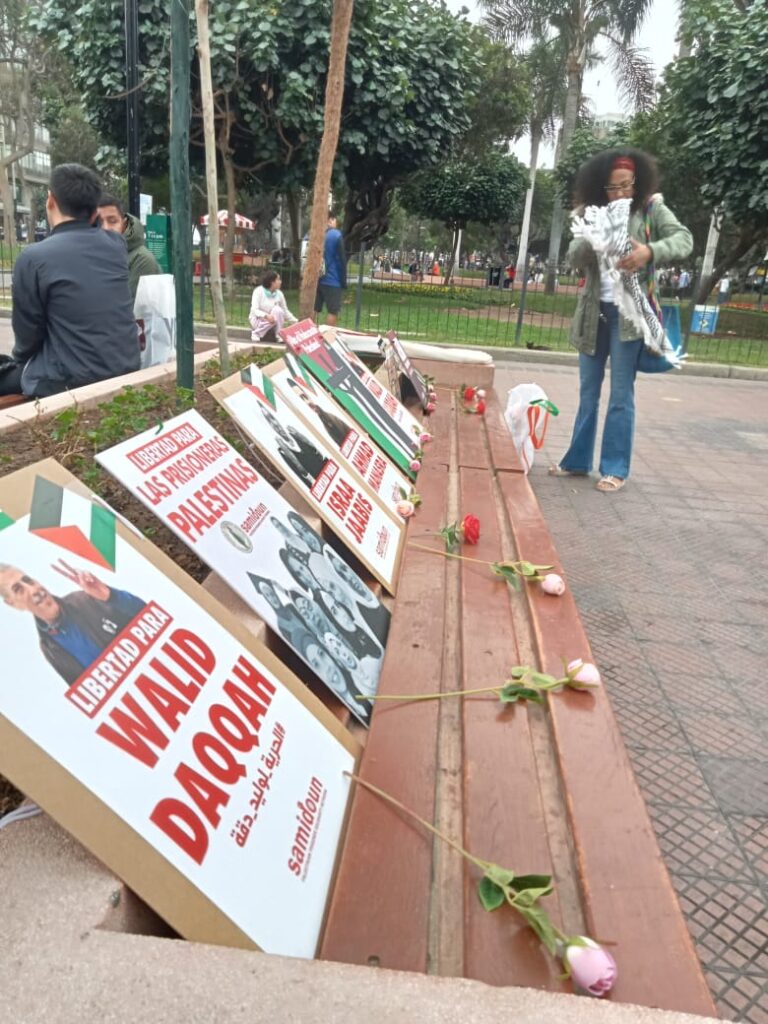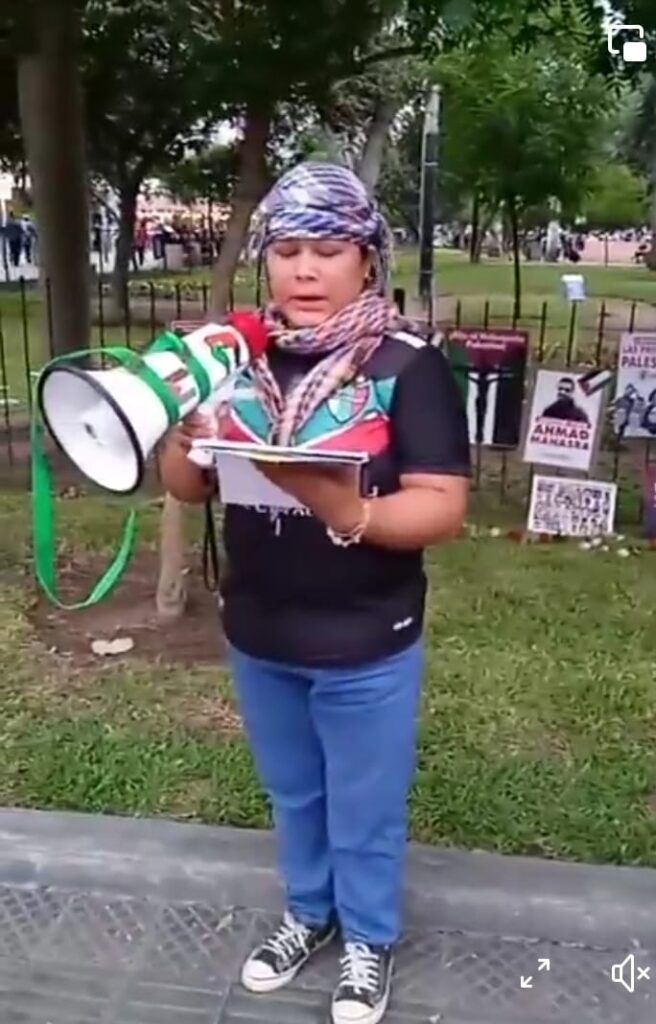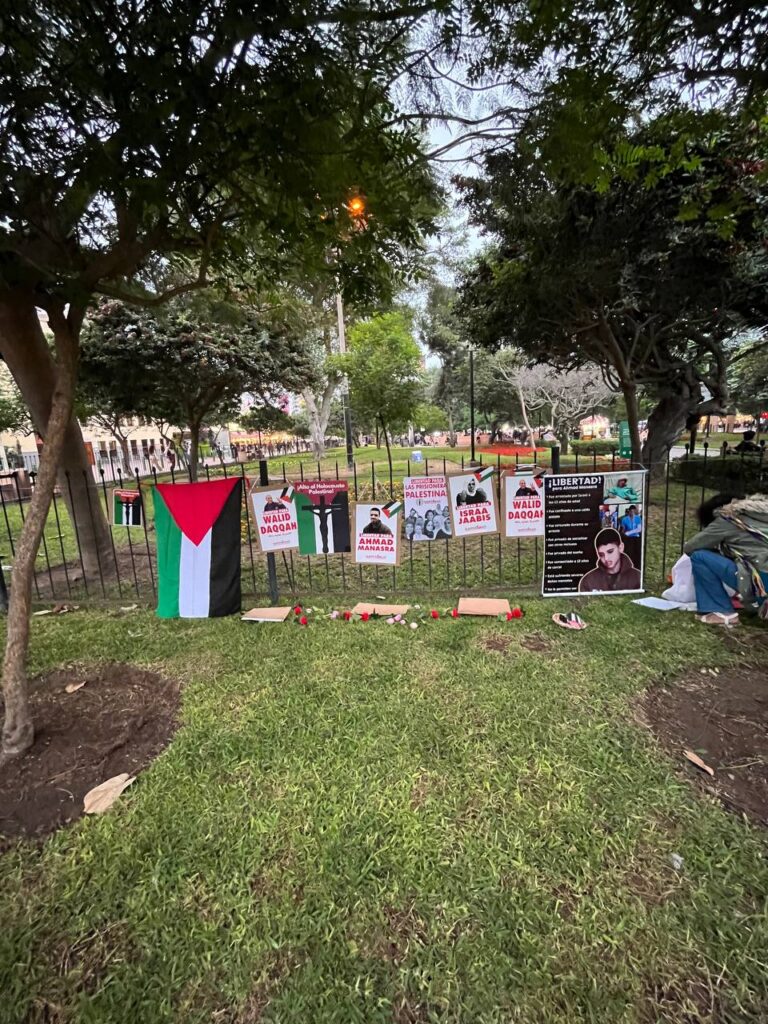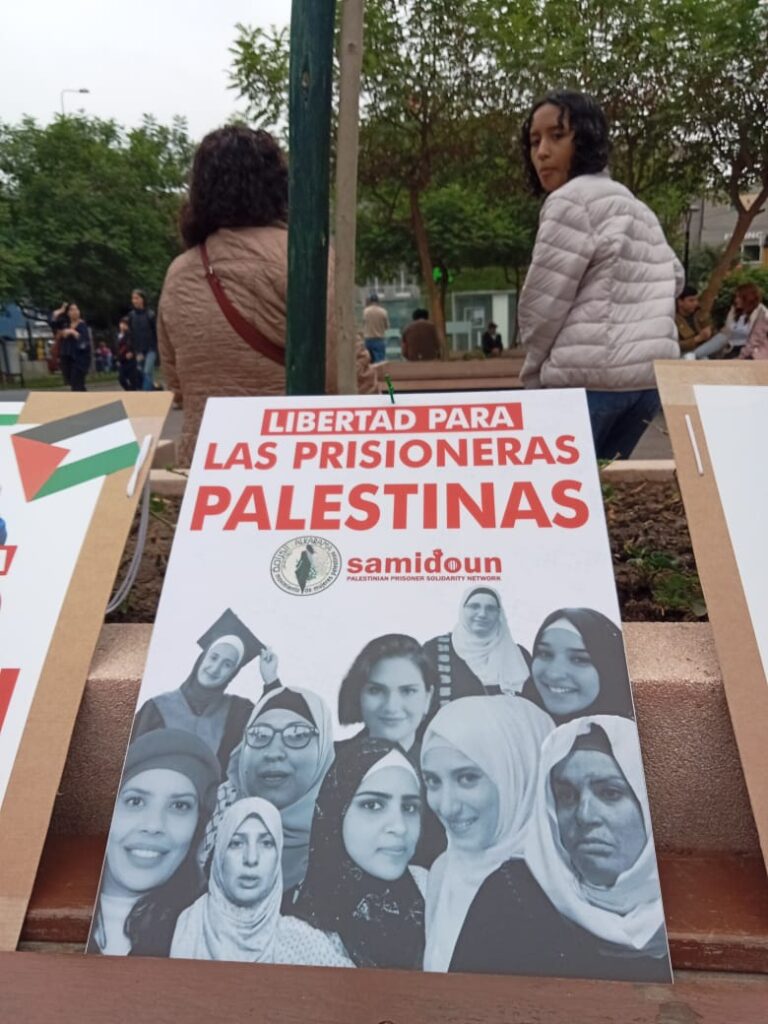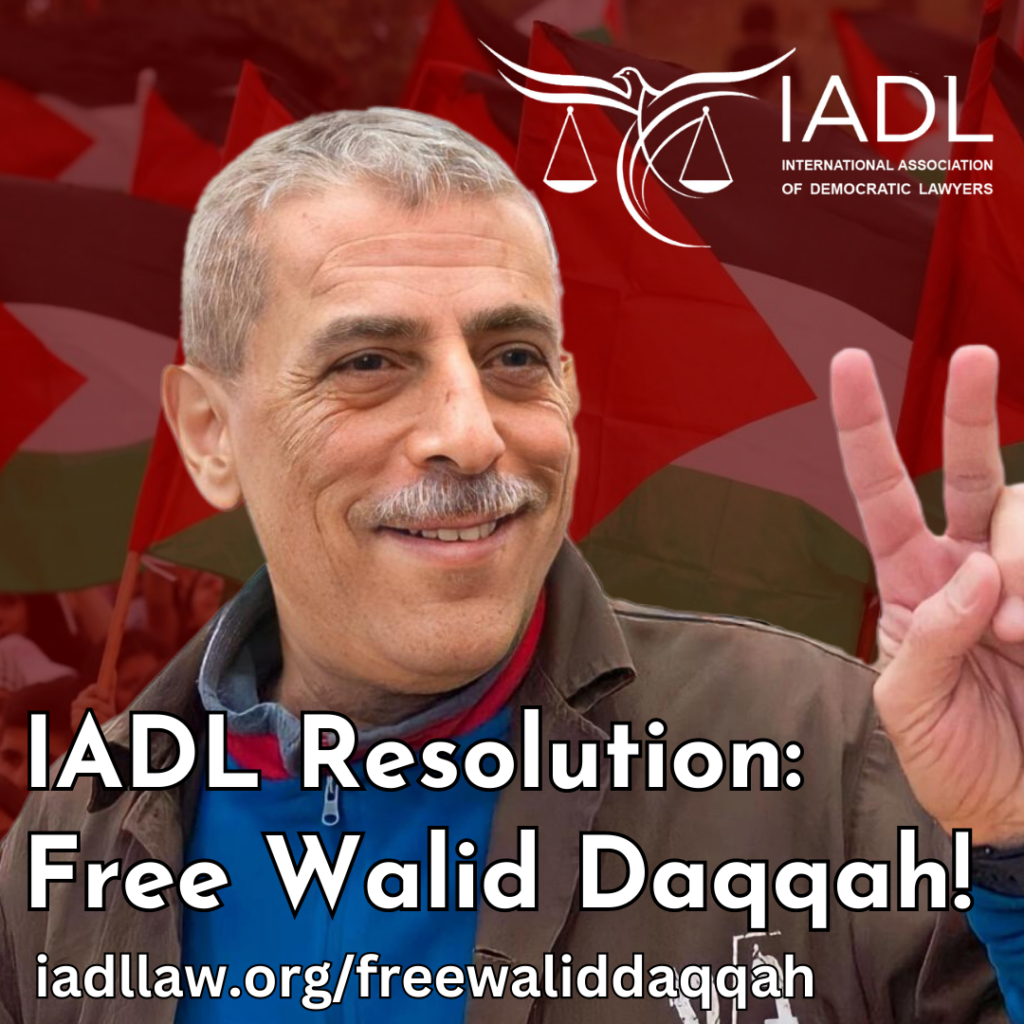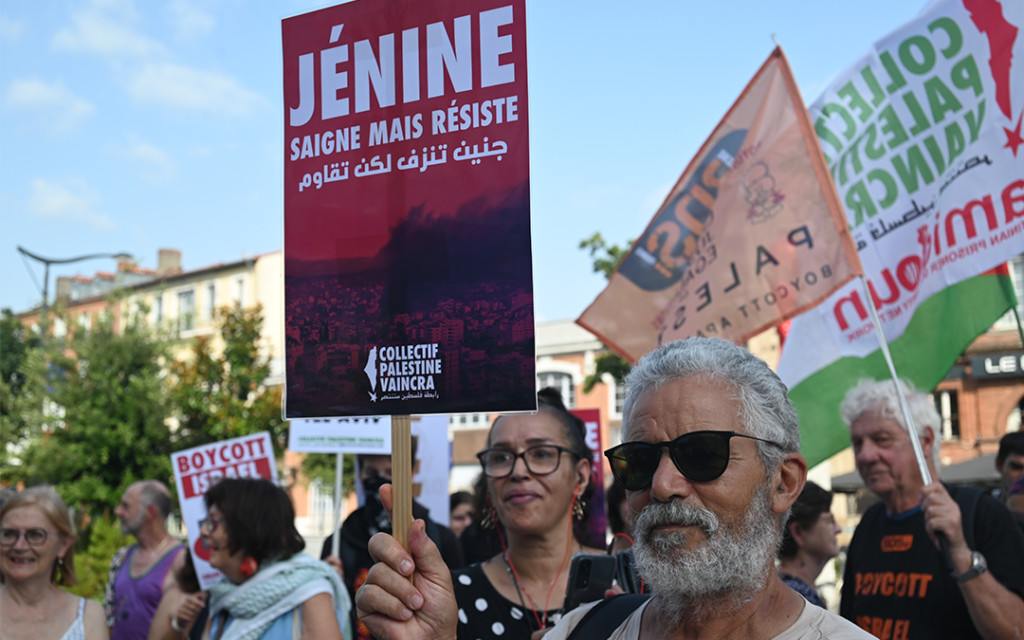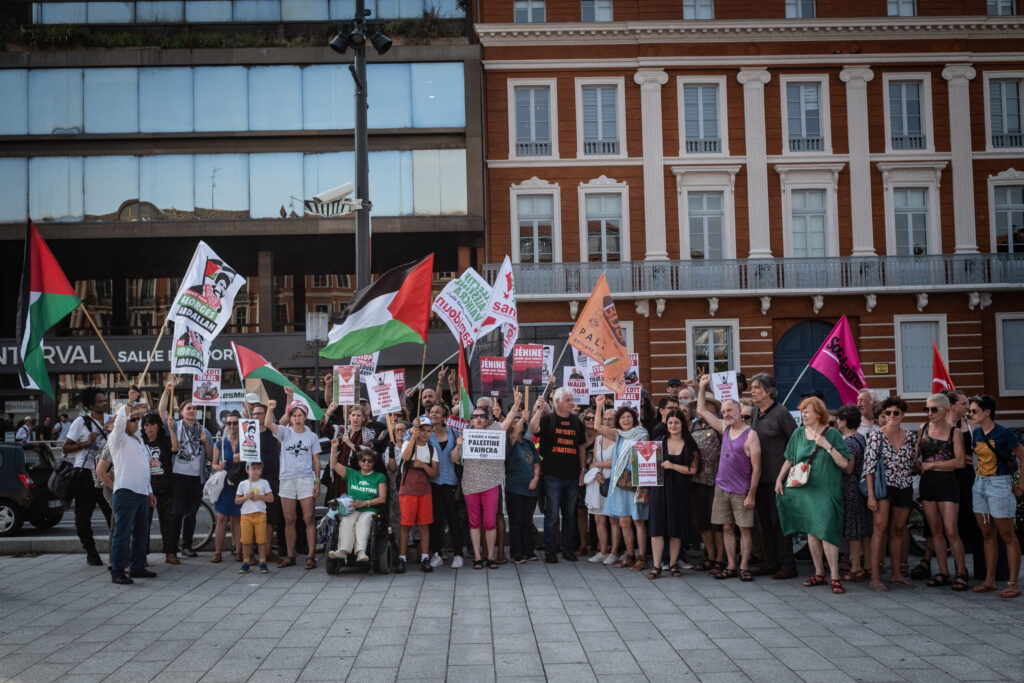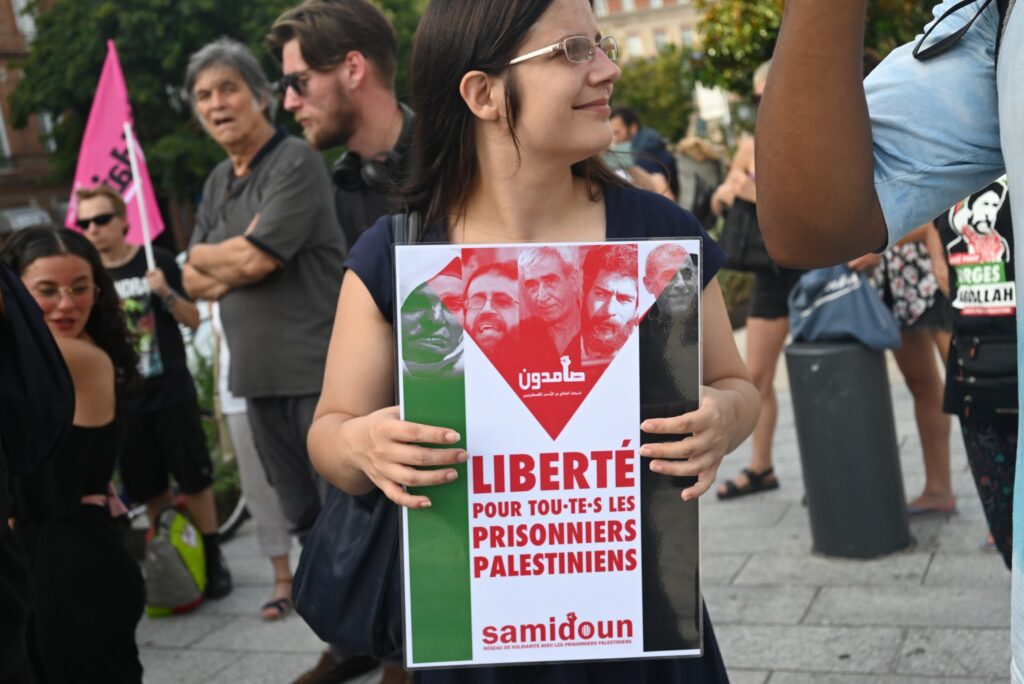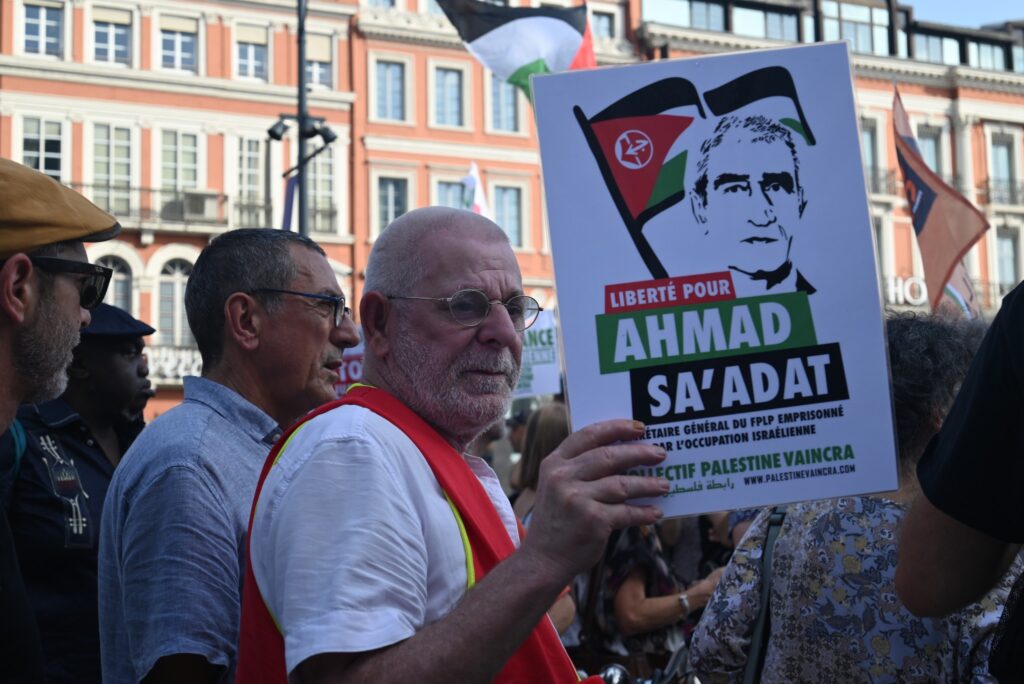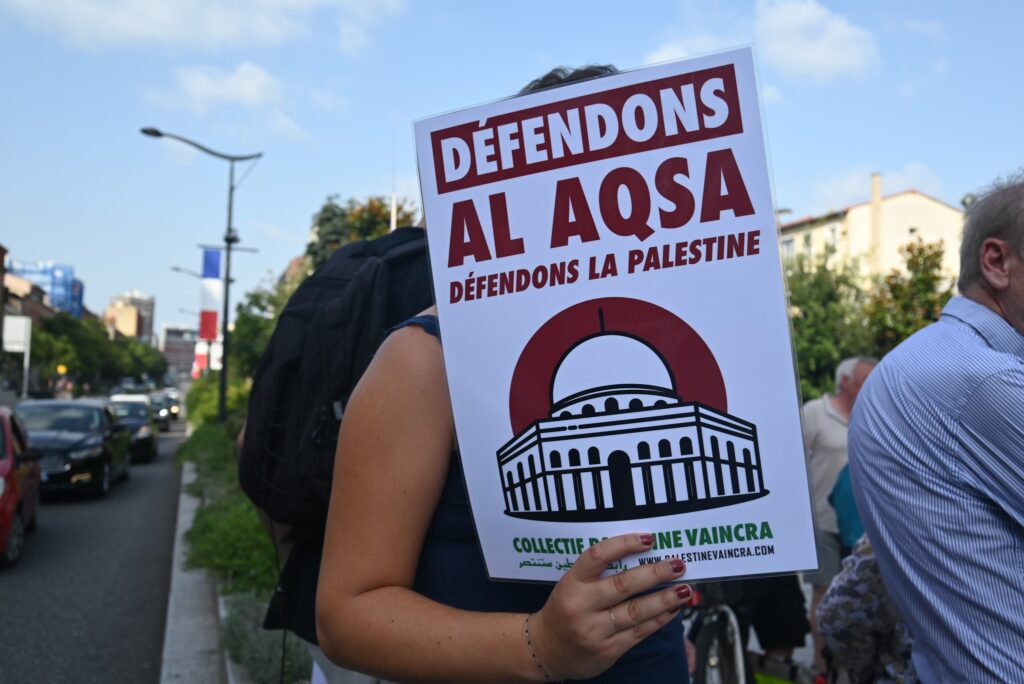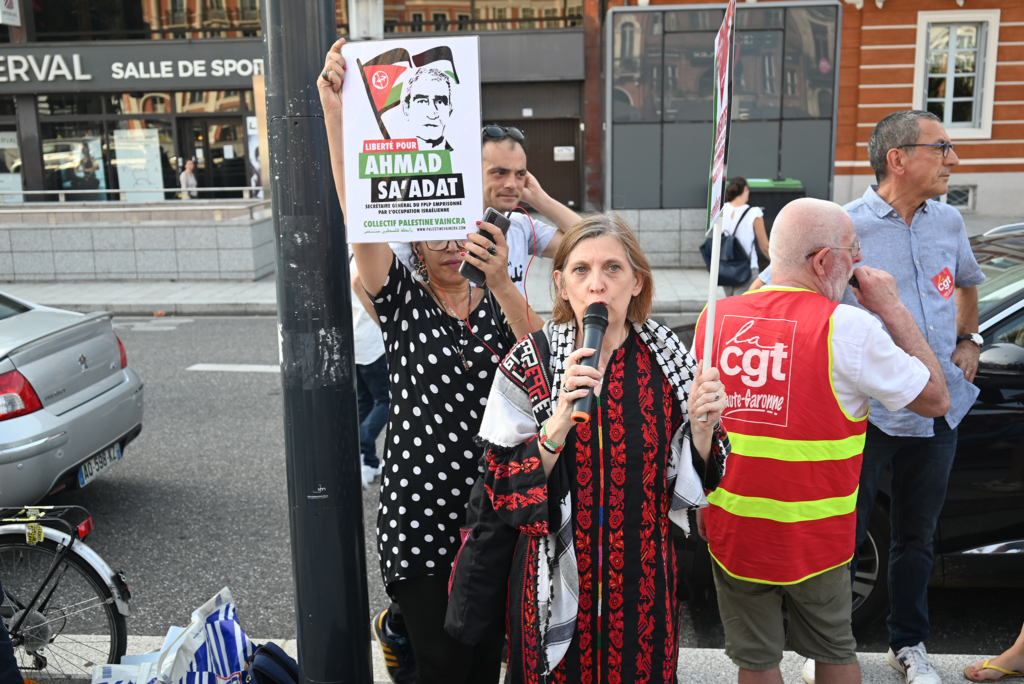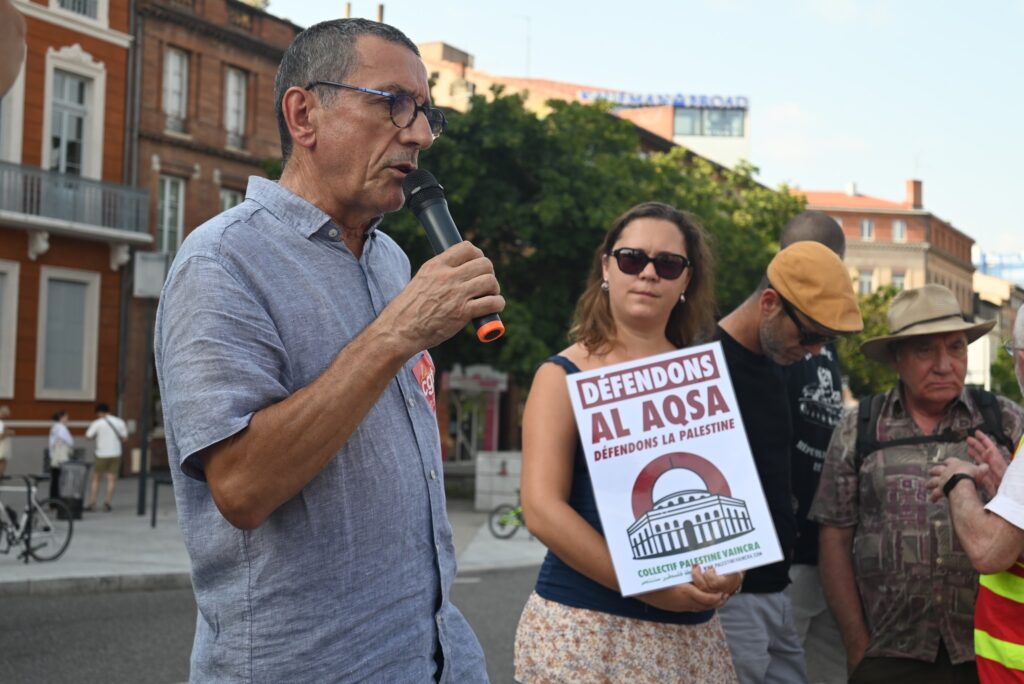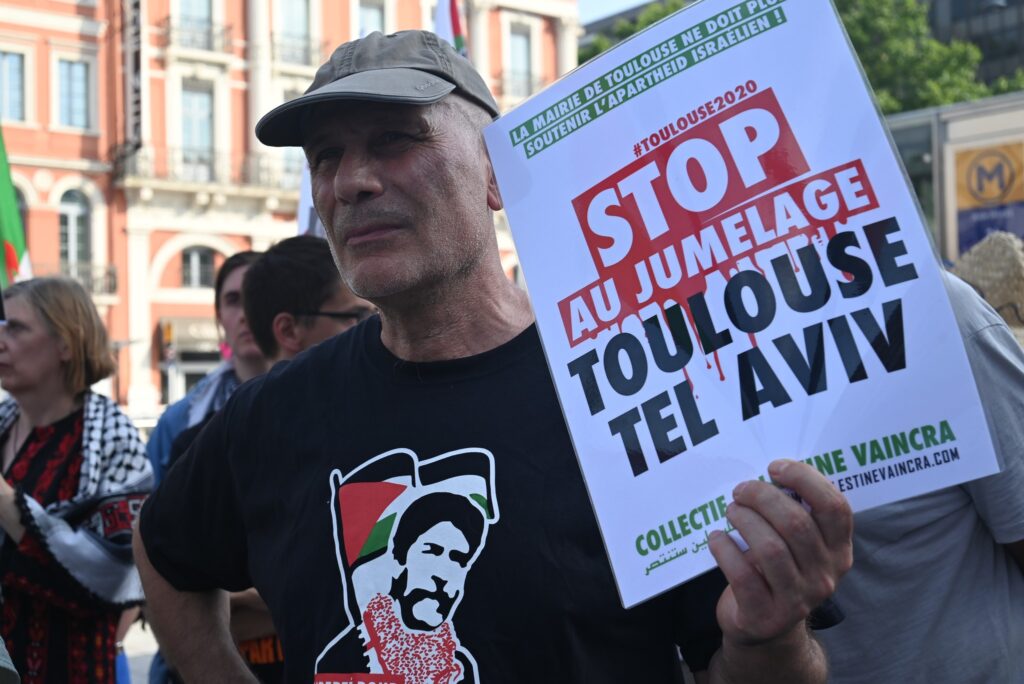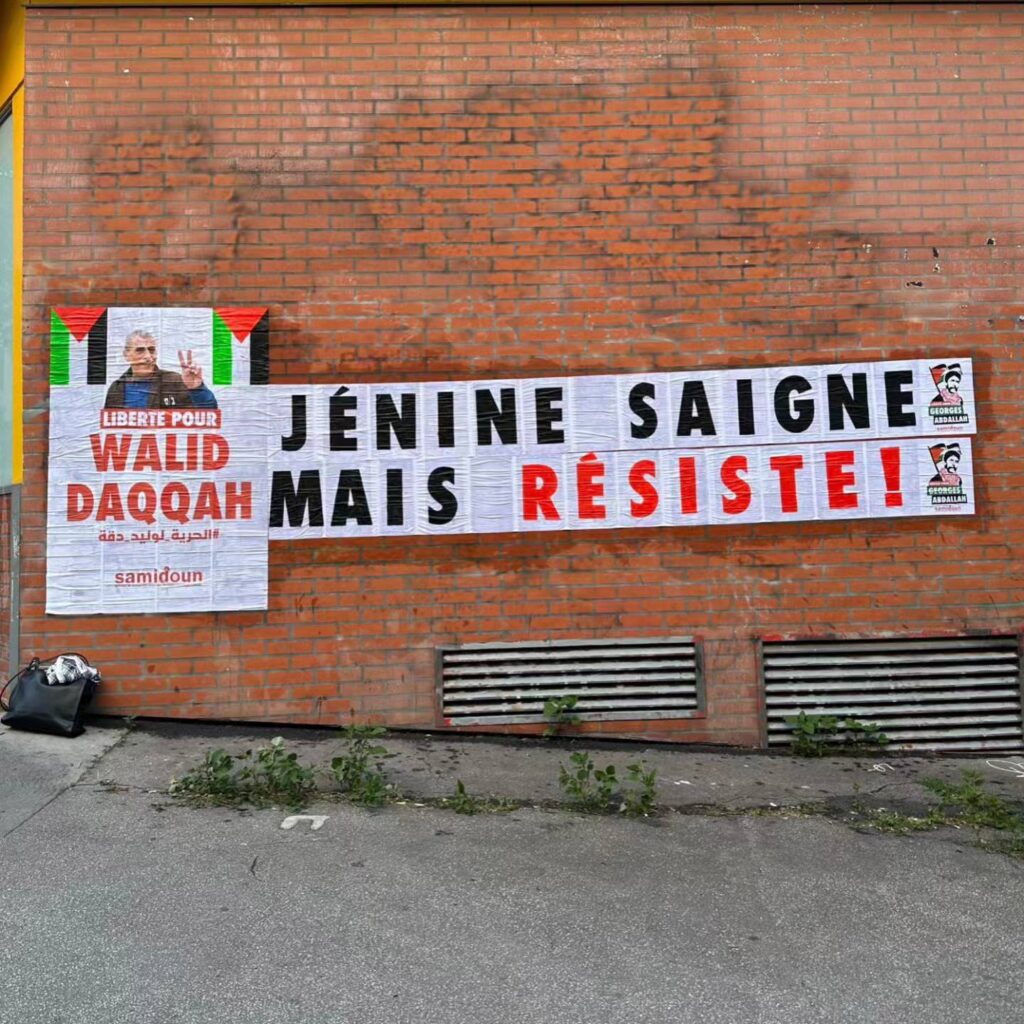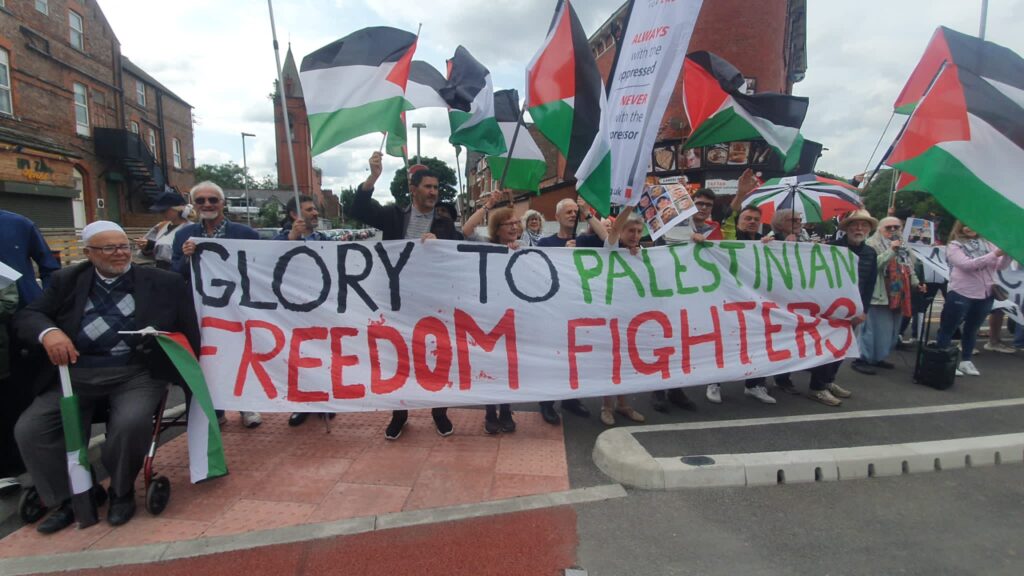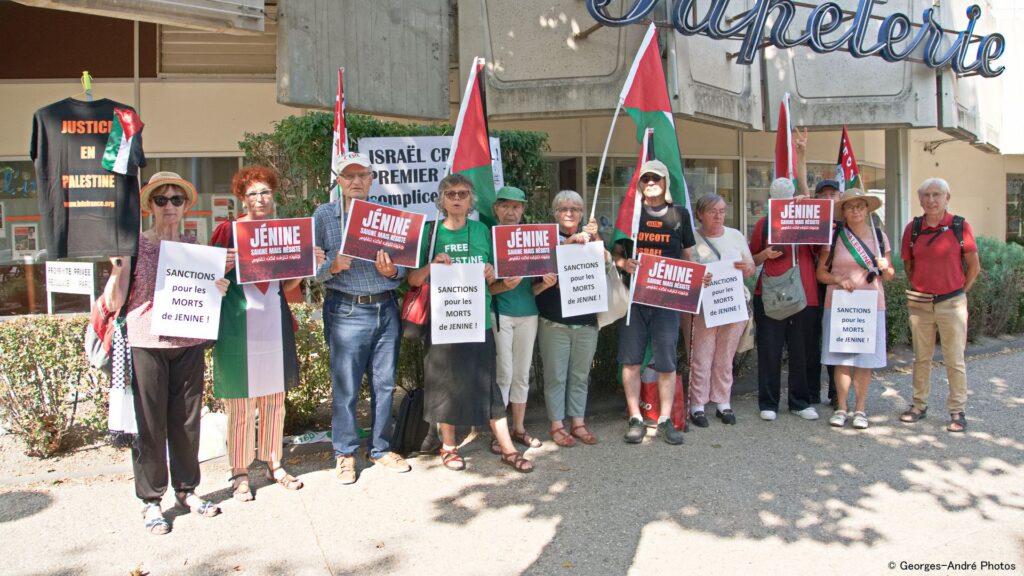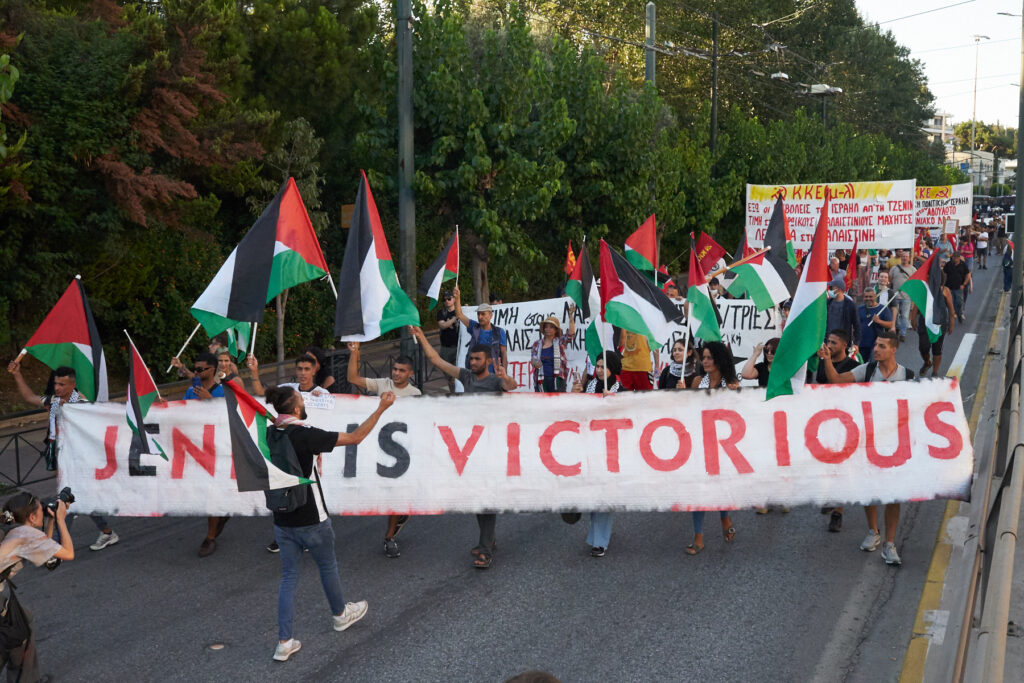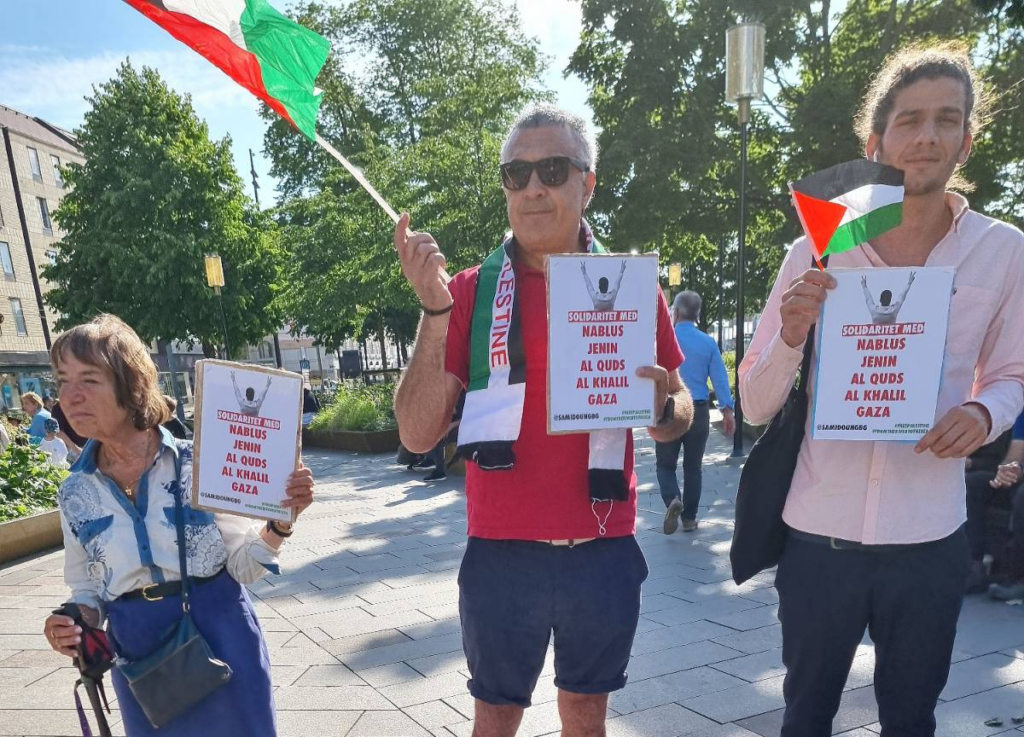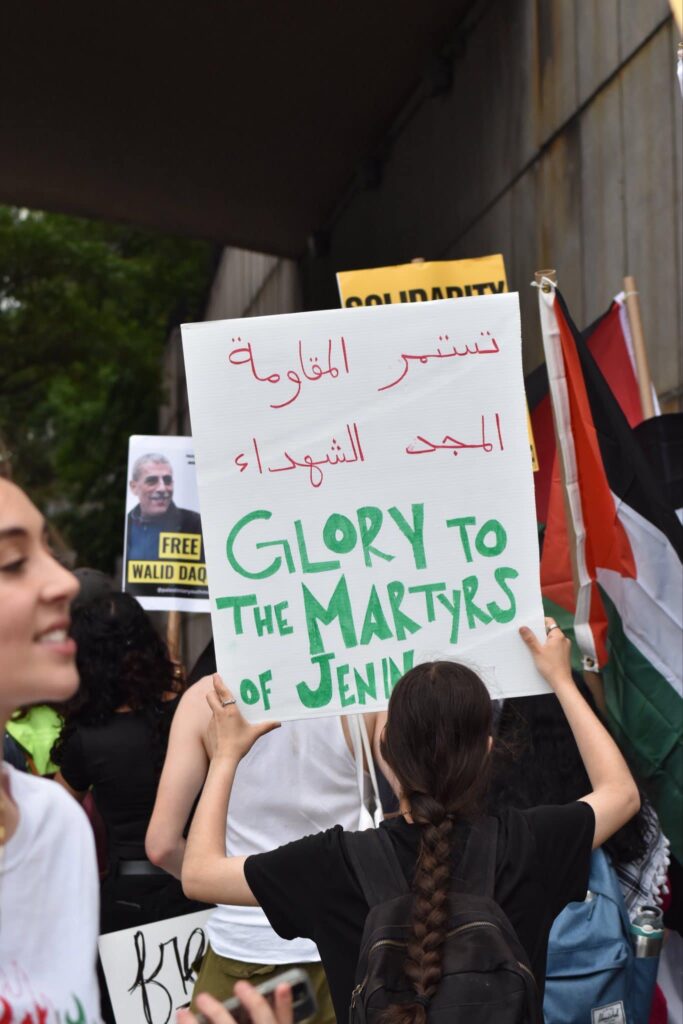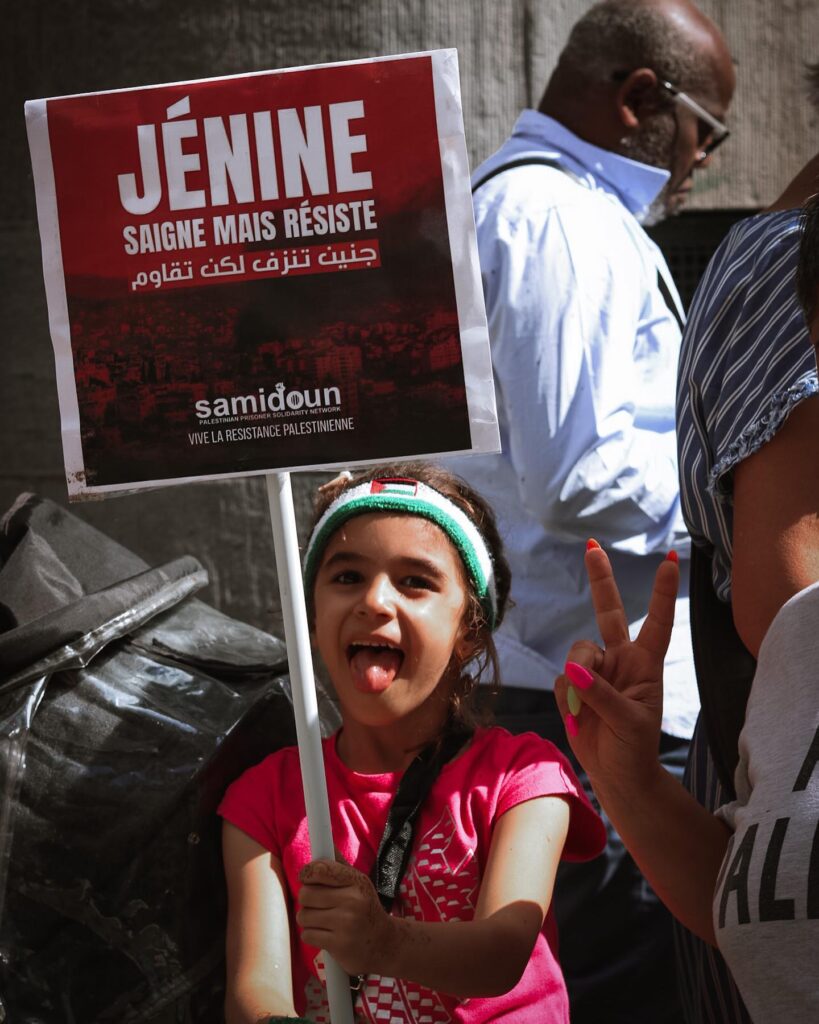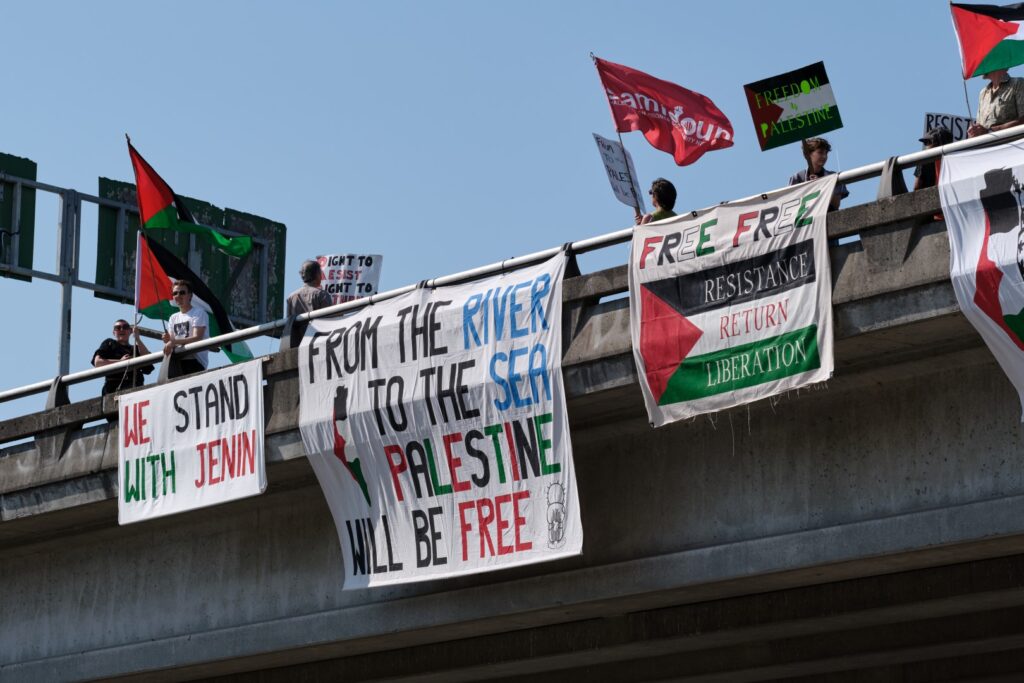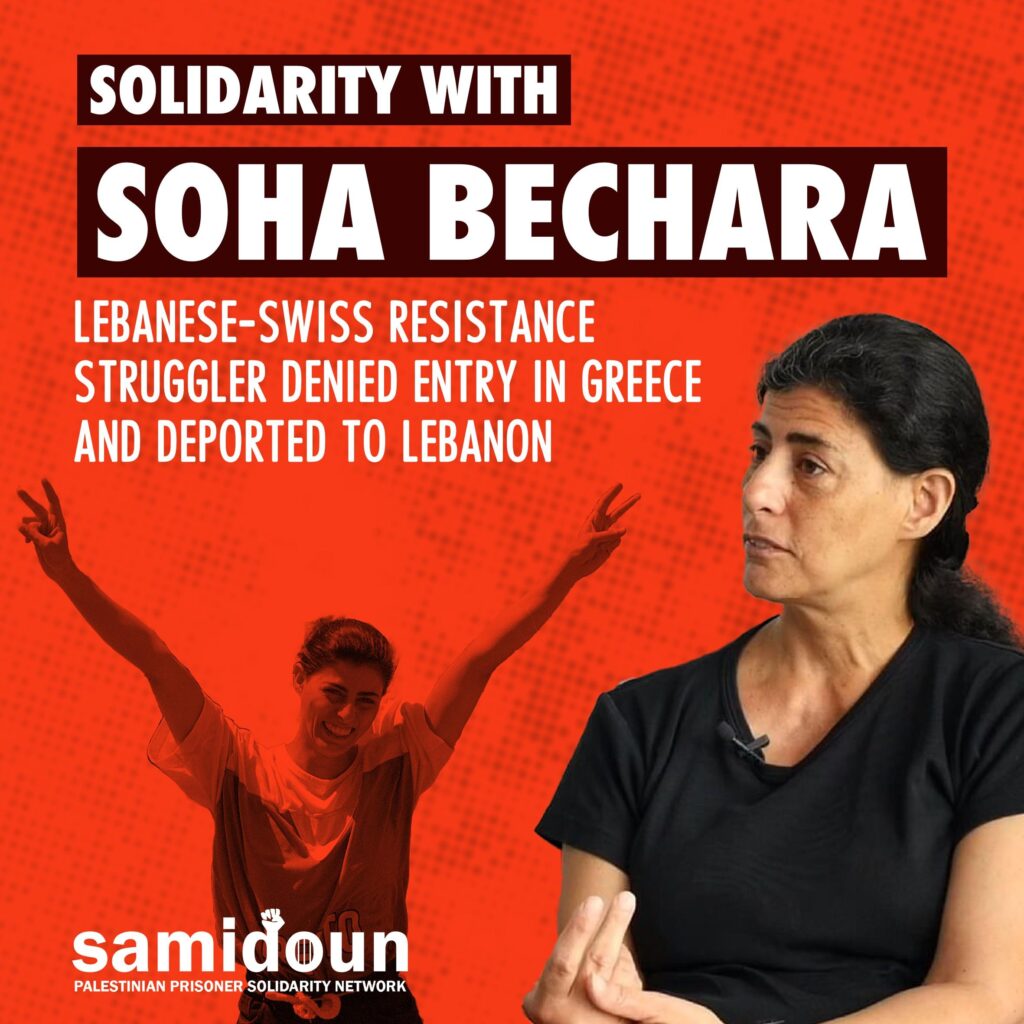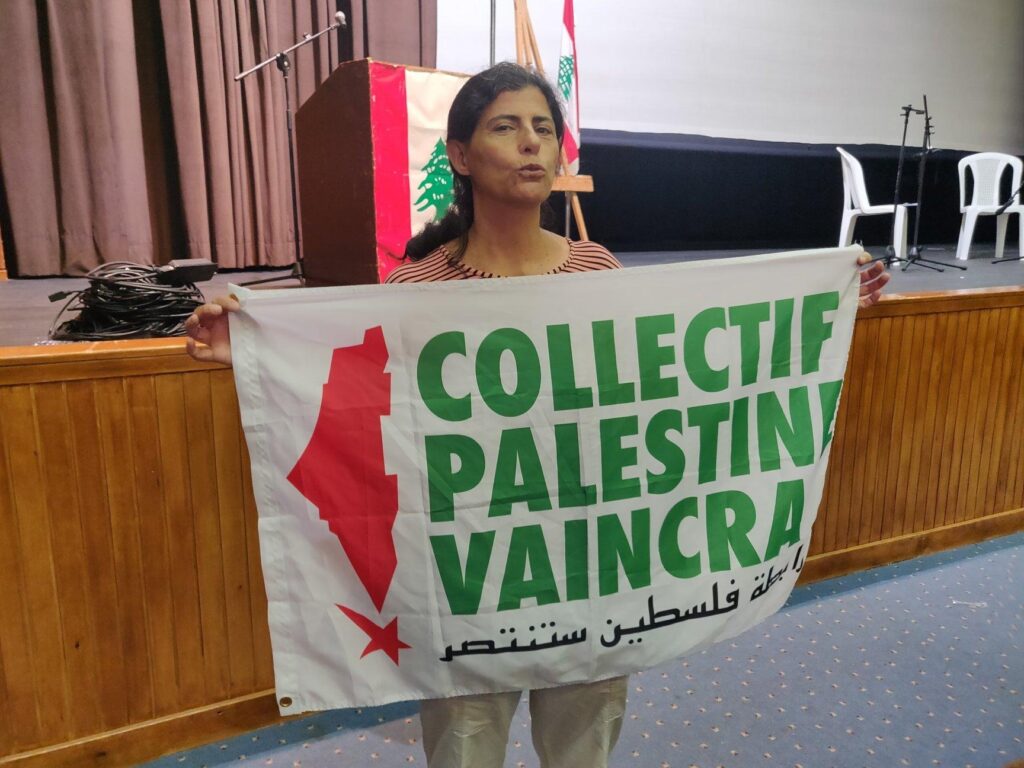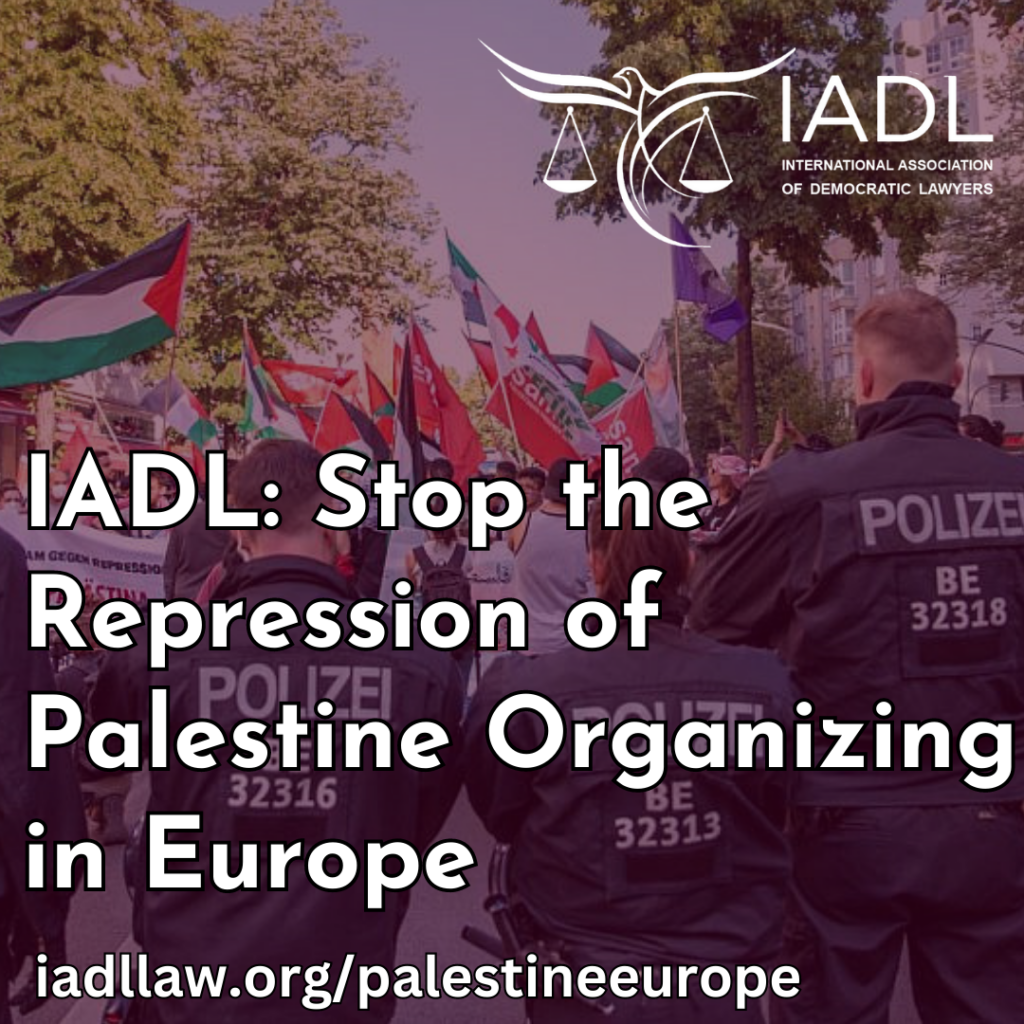
The International Association of Democratic Lawyers adopted a resolution at its Council meeting on 2 July 2023, condemning the attacks on Palestine solidarity and Palestinian community organizing in Europe. Specifically, the resolution addresses the banning of Nakba commemorations and other demonstrations in Germany, the Israeli ambassador’s demand to ban Samidoun Deutschland, and the ongoing targeting of Palestinian activists for deportation, surveillance and immigration repression; the French government’s ongoing attempt to dissolve and ban the Collectif Palestine Vaincra and other organizations; the prosecution of protesters in Spain while Israeli security agents point guns on university campuses; the City of Geneva cancelling an art exhibition at the request of the Israeli ambassador; and the Netherlands’ recent arrest of Palestinian activists while buying Israeli weapons from Elbit Systems. It also urges institutions and legal organizations to reject the so-called “IHRA definition of anti-Semitism” that aims to equate anti-Zionism and support for Palestinian liberation with anti-Semitism.
The full text of the resolution follows:
IADL Resolution on State Repression Targeting Palestine Solidarity and Palestinian Community Organizing in Europe
Whereas, the International Association of Democratic Lawyers has previously raised serious concerns about the ongoing repression of Palestinian community and Palestine solidarity organizing in Europe, particularly in Germany, and
Whereas, these incidents have included the stripping of a Schengen visa from torture survivor and former political prisoner Rasmea Odeh, the political ban on Palestinian writer Khaled Barakat and his deportation from Germany, the firing of Palestinian and Arab journalists for expressing their opinions about Palestine on social media, the acts of various state governments, including that of Berlin, to ban commemorations of the Nakba and demonstrations to free Palestinian political prisoners, and to block events and activities in support of Palestine or advocating for boycott, divestment and sanctions against Israel, from taking place in public facilities or at all, and
Whereas, this has also included Berlin immigration officials in multiple cases recommending denial of residency, expulsion and even bans from Germany or from Europe for multiple years, particularly against Palestinian youths, including stateless Palestinian refugees, and
Whereas, on 17 April 2023, Berlin police once again banned demonstrations for Palestinian Prisoners’ Day, and in May 2023, banned commemorations of the 75th anniversary of the Nakba, the forced expulsion of Palestinians from their homes and lands, and
Whereas, the one event on 20 May 2023 that was not initially banned, organized by Jewish solidarity organizers, was attacked by police after the organizers refused to exclude Palestinian activists from their demonstration or bar people from chanting, “From the river to the sea, Palestine will be free,” and Jewish, Palestinian and solidarity activists were violently arrested by Berlin police, and
Whereas, Berlin police dispatched at least six armed officers to remove a mural poster of Khader Adnan, the Palestinian prisoner who died in Israeli jails after 86 days on hunger strike, from an empty wall in Berlin, and
Whereas, the Israeli ambassador to Germany has since demanded that grassroots Palestinian prisoner solidarity organization Samidoun be banned in Germany and that posters in support of Palestinian political prisoners should also be banned in Berlin, while the German-Israeli Society called for criminal prosecution of Samidoun members and other Palestinian activists under Germany’s Section 129(b), which has been used to prosecute Turkish and Kurdish leftist activists in Germany, and
Whereas, Palestinian and solidarity activists in Berlin were visited in their homes by police and questioned about their work with Samidoun, and
Whereas, a Palestine solidarity demonstration in Köln was dissolved by the police on 13 May 2023 after demonstrators spoke in favor of Palestinian resistance to Israeli occupation, and
Whereas, over 160 organizations have joined in an International Campaign Against Anti-Palestinian Repression in Germany, and dozens of organizations in Berlin have created the Revolutionary Solidarity Coalition to organize against this repression, and
Whereas, these concerns are not limited to Germany, as France has issued dissolution orders against the Collectif Palestine Vaincra and several other Palestine organizations, and has recently issued a new dissolution order against environmental activists, and
Whereas, the Collectif Palestine Vaincra was victorious in its initial appeal to the Council of State, suspending the application of the dissolution order, but the main case is still pending and these Palestine solidarity organizations continue to be threatened with dissolution, and
Whereas, the pending threatened dissolution continues to be used to deplatform the Collectif and deny it access to fundraising tools and banking, and
Whereas, the Israeli ambassador to Switzerland intervened in May 2023 and caused the City of Geneva to bar an exhibition of the posters of Swiss artist and revolutionary Marc Rudin organized by Secours Rouge Geneva and Samidoun Geneva from a city-owned venue, and
Whereas, the government of the Netherlands signed a $305 million deal to purchase weapons from Israel’s Elbit Systems in May 2023 and then, in June 2023, arrested a Palestinian-Dutch father and daughter for their charitable work for Palestine, who have been subjected to a long-running defamation campaign by Israel-aligned organizations, and
Whereas, several activists in Spain are facing prosecution in Madrid for protesting against the presence of the Israeli ambassador at the Complutense University, while there appears to be no punishment for an Israeli security agent accompanying the ambassador, who pointed a gun at the protesters in the university building, and the prosecution appears to seek the addition of hate crimes charges in this case of progressive activists protesting the representative of an apartheid state, and
Whereas, the International Holocaust Remembrance Alliance Definition (“IHRA Definition”) of anti-Semitism and its “examples,” most of which pertain to Israel, including “Denying the Jewish people their right to self-determination, eg, by claiming that the existence of a State of Israel is a racist endeavour” as an example of anti-Semitism, has been repeatedly used to justify the silencing, repression and banning of Palestinian and Palestine solidarity activities across Europe by equating anti-Zionism with anti-Semitism;
Therefore, be it resolved, that the International Association of Democratic Lawyers once again reiterates its call to German officials at the federal and state levels to cease the use of political bans, firing from public media positions, police prohibitions on events and immigration consequences to restrict public expression and advocacy for Palestinian rights, and
Be it further resolved, that the IADL calls upon French, Swiss, Dutch officials and the officials of all States to recognize the rights to freedom of expression in the International Covenant on Civil and Political Rights, including Article 19 and Article 2, without ostensibly claiming the right to restrict the freedom of expression of non-citizens, and
Be it further resolved, that the IADL calls upon lawyers’ organizations and states to reject the IHRA definition and its examples as a proper definition of anti-Semitism and instead encourages increased attention to fighting fascism, anti-Semitism and all forms of racism, including anti-Palestinian racism, and
Be it further resolved, that the IADL affirms that the right of Palestinians in exile and diaspora and supporters of justice in Palestine to organize, speak and boycott, divest and sanction Israel is part of the struggle for Palestinian rights and liberation, and actions to suppress these rights are a form of official state complicity with Israeli colonialism, apartheid and occupation in Palestine, and
Be it finally resolved, that the IADL will actively work together with targeted organizations and progressive legal associations to defend Palestinian and solidarity activists facing arrest, imprisonment, state harassment, political bans, immigration denials, and event prohibitions and defeat the unjust mechanisms used to carry out these repressive actions, including paragraph 129b in Germany and the widespread use of organizational dissolution in France.
Adopted by the IADL Council
2 July 2023
The IADL Council also adopted resolutions calling for freedom for Palestine Action prisoners in British jails and divestment from Israeli arms manufacturer Elbit Systems and for the release of Palestinian prisoner, intellectual and freedom fighter Walid Daqqah, suffering from myelofibrosis, a rare bone marrow cancer, repeatedly denied release and subjected to systematic Israeli medical neglect.
Founded in 1946, the IADL is accredited to UNESCO and ECOSOC at the United Nations, and it has sections and members in 50 countries and territories.
Since IADL’s founding in 1946 in Paris, IADL members have participated in the struggles that have made the violation of human rights of groups and individuals and threats to international peace and security, legal issues under international law. From its inception, IADL members throughout the globe have protested racism, colonialism, and economic and political injustice wherever they interfere with legal and human rights, often at the cost of these jurists’ personal safety and economic well being. IADL members in the United States, Canada, France, Puerto Rico, Brazil, Italy, Venezuela, Belgium, Germany, the United Kingdom, Austria, the Philippines, Japan, Spain, Portugal, Togo, South Africa, Bangladesh, Nigeria, and India, among others, participated in the Council meeting.
